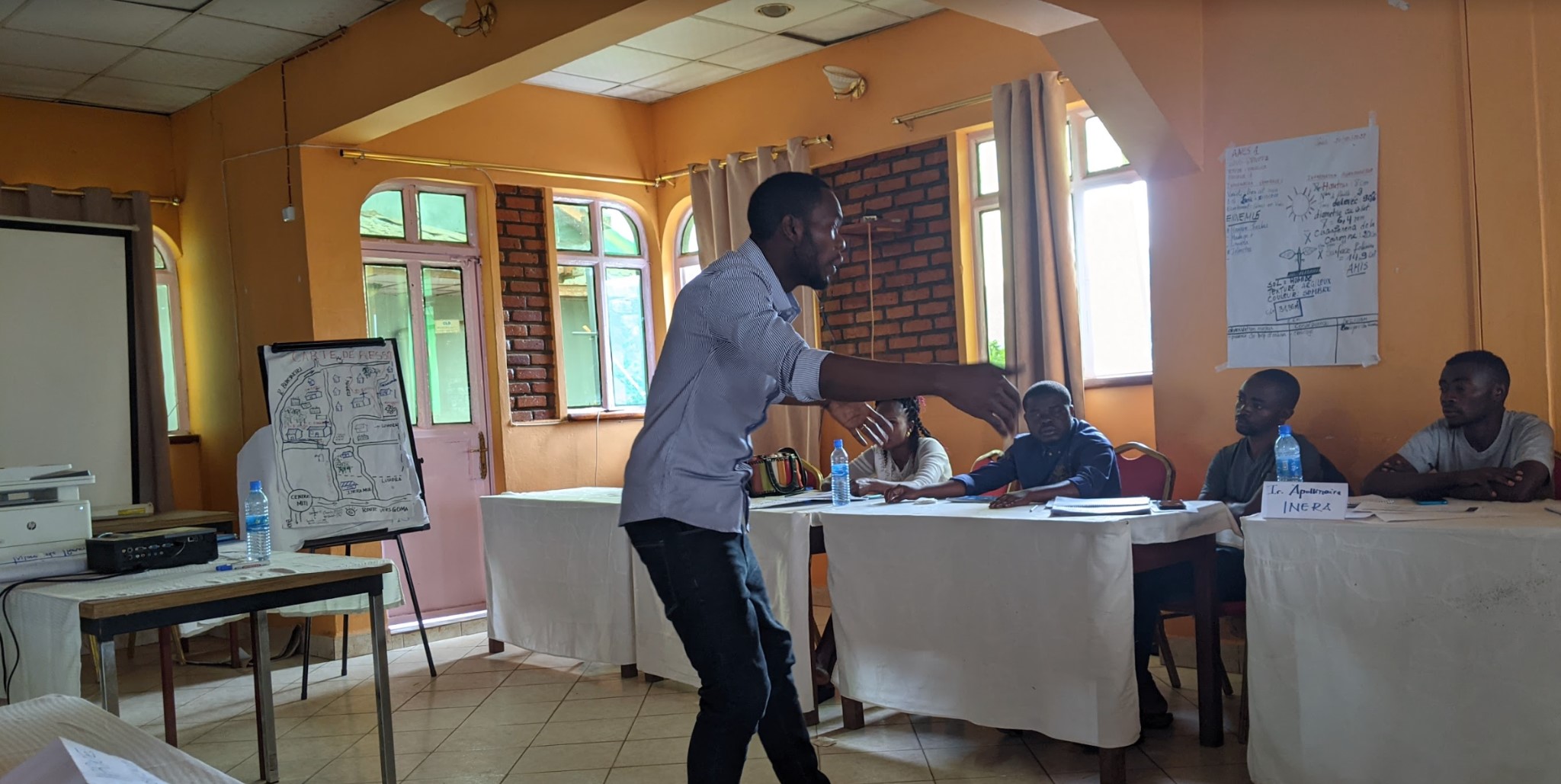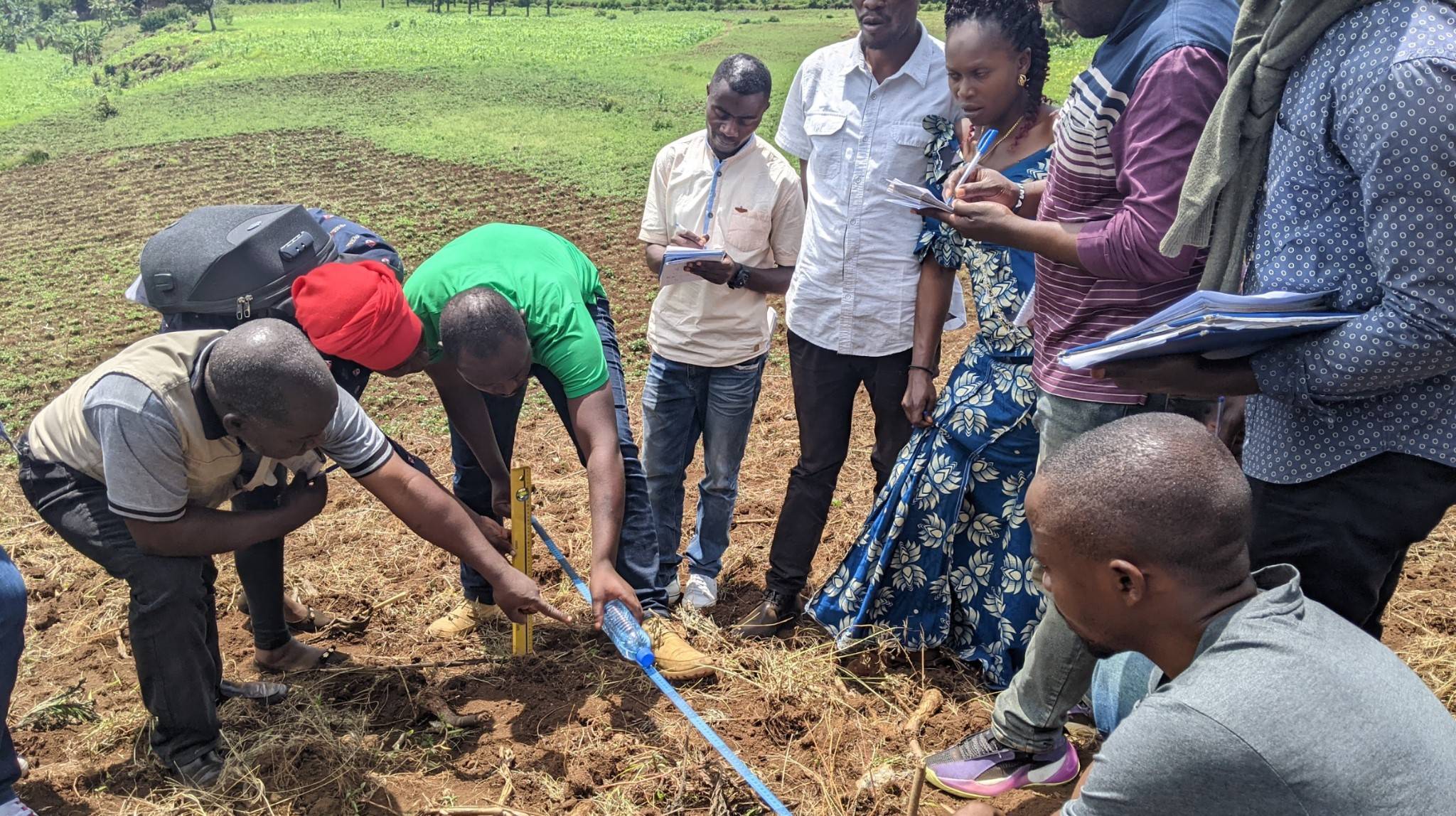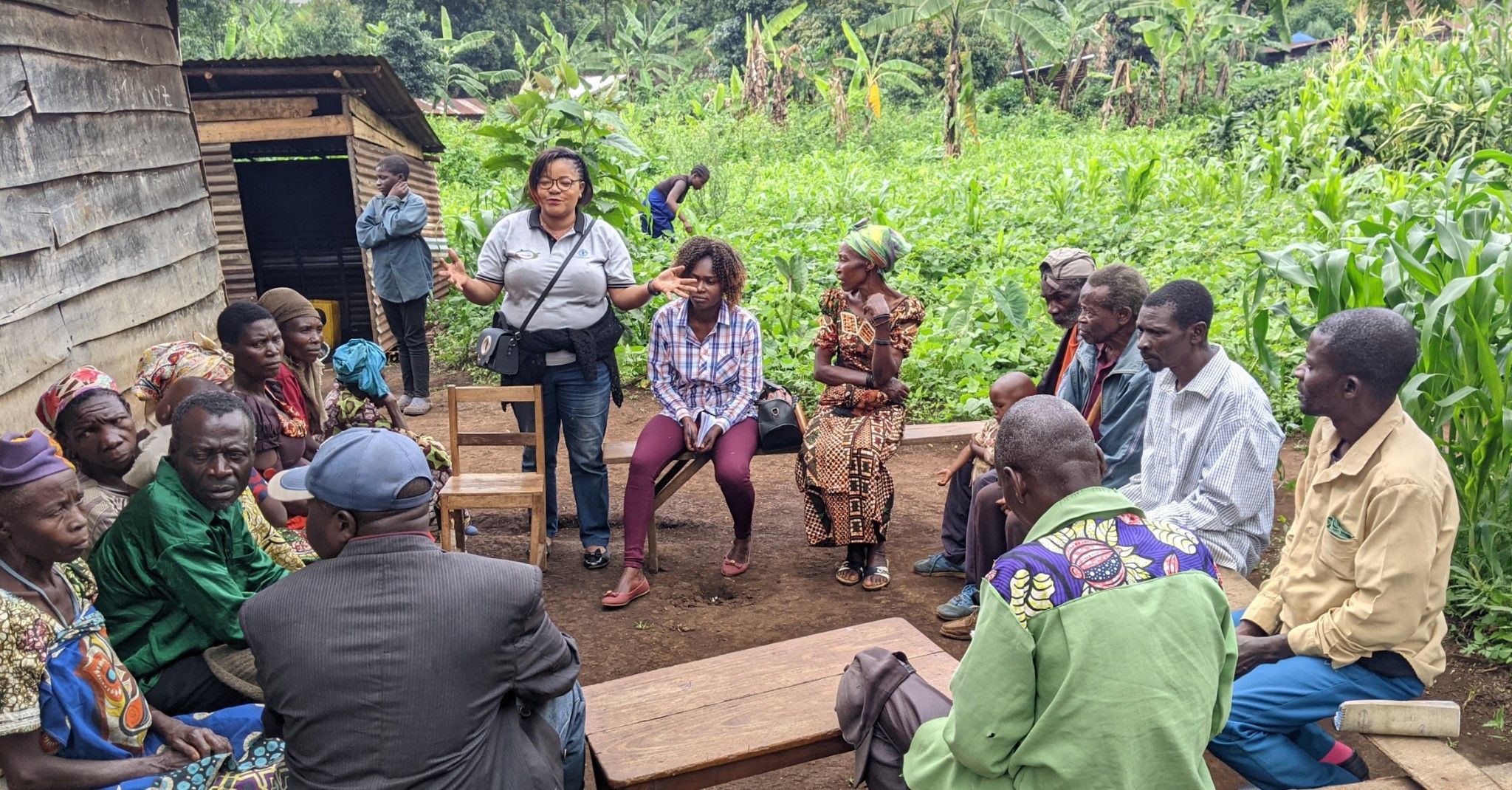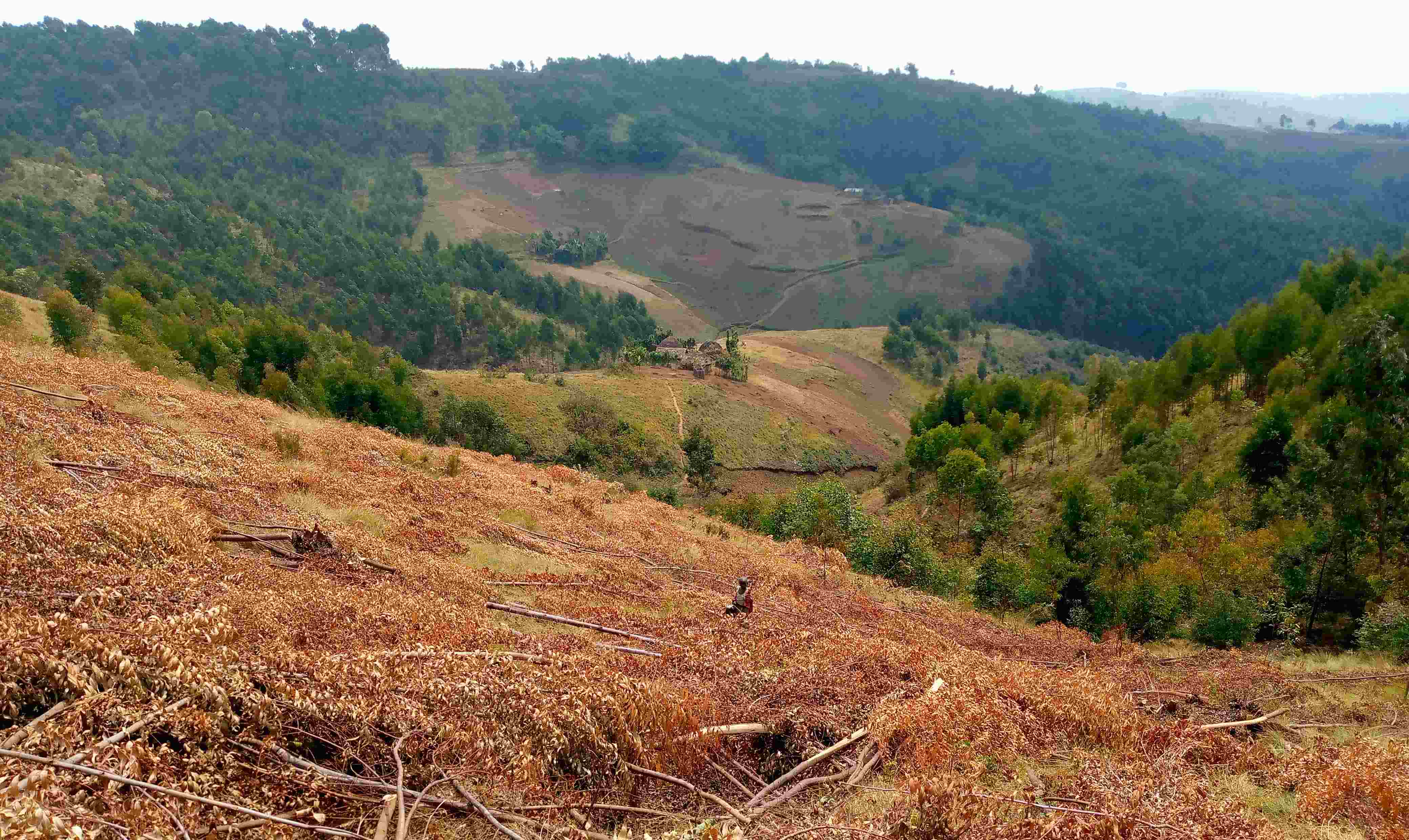Resilience fund approach to sustainable ecosystem restoration
Connecting and integrating productive, financial and social activities around farming and pastoralist communities in the Democratic Republic of the Congo.
The TRI project in the Democratic Republic of the Congo are working together to help address the environmental, economic and social challenges affecting natural resource management.
Deforestation and land degradation contribute to reduced forest cover, expended natural resources and the increased effects of climate change. Such effects include irregular seasons, excess heat, rainfall deficits, lower agricultural yields, increased greenhouse gas emissions, loss of biodiversity and food insecurity. The TRI project partners in the Democratic Republic of the Congo (DRC) are working together to help address the environmental, economic and social challenges affecting natural resource management.
The TRI project in DRC supports the Ministry of Environment and Sustainable Development, to implement the country’s Bonn Challenge pledge – with a country commitment to restore 8 million ha by 2030 – and in so doing, to reinforce the governance of the environmental sector, including water, forests and biodiversity. The Democratic Republic of the Congo is also part of the regional restoration initiative AFR100. Concretely, the TRI project contributes to achieving these restoration pledges through the restoration and sustainable management of at least 4 800 ha of degraded forests and landscapes in the province of South Kivu.
The caisse de résilience approach revolves around farming and pastoralist communities – both men and women – connecting and integrating productive, financial and social activities, which involve technical services provided and carried out by NGOs, as well as rural community members. This approach is appropriate for the sustainable restoration of forests and landscapes and includes three pillars: 1) Dimitra Clubs; 2) Farmer Field School (FFS); and 3) Village Savings and Loan Association (VSLA).
 Explanation of the planning stages of the CEP activities by Master Trainer, Jackson Ngongo.
Photo: FAO/Floribert Mbolela
Explanation of the planning stages of the CEP activities by Master Trainer, Jackson Ngongo.
Photo: FAO/Floribert Mbolela
Dimitra Clubs
The Dimitra Club pillar raises awareness and mobilizes both communities and local authorities around environmental issues, including their impacts and the need to implement restoration. Dimitra Clubs contribute to reawakening community dynamics around restoration and strengthen inclusive community engagement, collective action and gender equality. The Dimitra Club pillar also helps to identify common problems and challenges, with restoration as an entry point, enables communities to analyse and discuss these to find local solutions, and encourages them to apply these solutions using their own resources.
In total, 90 Dimitra Clubs have been supported by the project. The approach reached 2 760 households who took ownership of the good practices of FLR to establish nurseries, which resulted in the production and distribution of 30 000 seedlings of forest and agroforestry species by each Dimitra Club. Each member also received four fruit tree seedlings (including two mango and two avocado trees) for planting in their respective fields. The establishment of nurseries allowed for the production and distribution of 2.7 million seedlings of efficient species for the restoration of forest landscapes through Dimitra Clubs, as supported by two local NGOs.
The project also assisted 400 Indigenous Peoples’ households living around the KBNP in the development of alternative activities to forest resources, including the establishment of home gardens and the domestication of medicinal and other valuable plants.
Farmer Field School
The FFS pillar, otherwise known as Farmer Field and Life School pillar, is an education opportunity based on adult learning principles. It aims to build the capacity of producers on restoration opportunities and options through observation, action, experimentation and decision-making.
The FFS follows a democratic system. Planning, decisions and actions are made in teams, considering the ideas of all with the guidance of the facilitator. Such democratic processes led to the identification of three priority learning themes in 2022 through the FFS approach: a) erosion control; b) agroforestry; and c) sustainable soil fertility management.
As part of capacity building and technology transfer, 520 households were trained on erosion control techniques and climate change-resilient agriculture through the FFS linked to restoration and with the technical support of the Institut National pour l’Étude et la Recherche Agronomique or National Agricultural Study and Research Institute (INERA) and the Centre de Recherche en Science Naturelles or Research Centre in Natural Sciences (CRSN-Lwiro). This resulted in a total of 110 ha improved after the training on erosion control techniques.
 Implementation of erosion control as a restoration option, pictured here in Mulungu, determining the slope of the land with local materials.
Implementation of erosion control as a restoration option, pictured here in Mulungu, determining the slope of the land with local materials.Photo: FAO/Floribert Mbolela
Village Savings and Loan Association
The pillar for VSLA or Association villageoise d’épargne et de crédit (AVEC) comprises a group of 15 to 30 people who save funds together, provide each other loans from said savings and develop income-generating activities. The added value of this approach includes awareness raising and collaboration among households within villages, strengthening social cohesion, improving the resilience of the affected people and residents combining forces to support the sustainable management of local resources. The VSLA pillar strengthens household economies and contributes to reducing the pressure on natural resources.
To strengthen the activities of the resilience fund, the TRI project, in collaboration with partner Louvain Coopération, has identified and selected a total of 70 microprojects for the promotion of FLR in 2022, ultimately to support environmentally sensitive income-generating activities. These microprojects, which are currently being financed by the TRI project, will improve the income of households in the target community.
Through this activity, sustainable livelihoods will be developed directly by local communities to increase the economic value of agricultural, pastoral and forestry ecosystems while promoting the conservation of local natural resources.
 Mission to raise awareness of the forest and landscape restoration approach among community members as a pillar of the FAO resilience fund.
Mission to raise awareness of the forest and landscape restoration approach among community members as a pillar of the FAO resilience fund.Photo: FAO/Floribert Mbolela
Conclusion
The implementation of the caisse de résilience approach applied to the restoration of agricultural ecosystems has improved the climate resilience of small-scale producers through the dissemination of best agroforestry practices. Small-scale agriculture plays an important role in food security and meeting basic needs. The project succeeded in integrating restoration options through technical knowledge transfer using the FFS approach, thereby enhancing the chance of sustainable, long-term outcomes.
This approach has thus strengthened community engagement and empowered target households to improve their livelihoods and well-being while enhancing biodiversity conservation, climate change mitigation and SLM.
This story is from TRI Year in Review 2022

